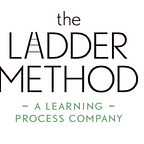Helping Kids Who Struggle With Executive Functions
Imagine being unable to focus on basic tasks, failing to meet deadlines, not being able to create and maintain healthy relationships, and getting persistently horrible grades.
One would ultimately drown in despair for being such a miserable underachiever, unable to accomplish the most basic of tasks that everyone else seems to be getting done without batting an eyelid.
The set of mental skills that help carry out the above-mentioned apparently ‘basic’ tasks is called executive functioning skills.
The degree of development of executive function is not uniform in every individual. People with a deficit in these essential abilities must be helped out so they can go about their daily life without difficulties being hurled at them. These are several measures that can be taken to help kids who struggle with executive functions.
How to Manage Executive Function Problems?
Executive functioning disorders in kids may be dealt with in the following ways, making daily tasks and activities easier and doable.
• Approach your task in a step-by-step manner.
• Use visual tools to help you stay organized, make use of instruments like alarm clocks, computers, and timers.
• Create schedules and check them frequently throughout the day.
• Whenever feasible, request both written and spoken directions.
To improve time management:
• Make a time estimate for each activity on your checklists.
• Assign deadlines for finishing each portion of lengthy work.
• Use calendars to remember important tasks, deadlines, and other events.
• Indicate the assignment’s due date at the top.
To better manage space and keep things from getting lost:
• Provide distinct workspaces with full sets of materials for various tasks.
• Set up the workstation.
• Reduce clutter.
• Establish a weekly time for organizing and cleaning the workstation.
To improve work habits:
• Create a checklist for completing assignments. A student’s checklist may, for instance, ask them to bring out a pencil and paper, write their name on it, write down the due date, read the instructions, and so on.
• Regularly meet with a teacher or supervisor to discuss work and resolve issues.
Offering Teaching Support To Such Students:
Understanding the kind of deficit the student has is necessary before addressing it. Lack of knowledge prevents a student from knowing what to do or how to complete a task.
For instance, the practise of active listening should be clearly taught by citing instances to students who struggle to control their desires to speak during other people’s conversations.
Teacher conduct also matters; students with deficiencies should get frequent check-ins from teachers and offer individualized guidance when necessary. Additionally, exhibiting compassion and employing constructive criticism with deficit-ridden pupils might enhance their academic experience.
Key Takeaway!
To overcome problems faced because of weak executive functioning skills, it is important that such children have a solid support system in the form of a patient and dependable teacher who is properly educated on the topic and has thorough knowledge about executive functioning strategies.
Awareness is also needed to ensure that such children do not suffer at the hands of ignorant and impatient family members/peers crumpling them up entirely before they get a chance to spread their wings and soar.
